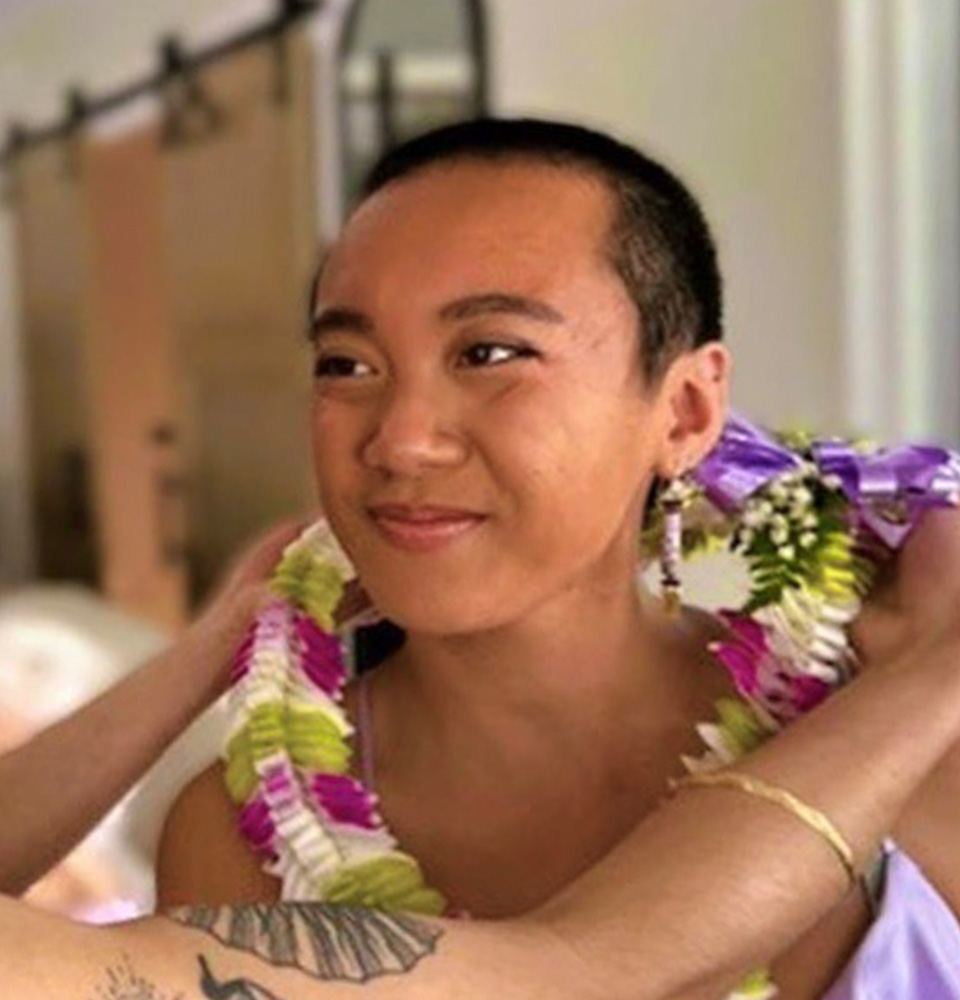Malia Hansen

Malia (they/them pronouns “for now”) is a third-year Critical Diversity Studies major and identifies as Japanese, Native Hawaiian, and Tongan all at once. We are thrilled to have Malia in our first cohort of AAPI Leadership Fellows! In our spotlight, they share how they understand some of the complexities and tension of the term AAPI.
Connect with Malia: Instagram | LinkedIn
Tell us about yourself and why you chose to join the new AAPI Student Leadership Fellows Program:
My name is Malia Hansen and I use they/them pronouns (at the moment). I am Japanese, Native Hawaiian and Tongan, all simultaneously. I am also a junior and a CDS major.
I chose to join the AAPI Leadership Fellows program because I wanted to learn what leadership looks like specifically by and for AAPIs. I have seen a lot of powerful examples of leadership in my home and family, but I wanted to learn more and how to apply AAPI Leadership models to social movements. I also want to practice stepping up in my communities as both an Asian American and Pacific Islander leader.
I’ve been getting more involved in Pacific Islander activities and communities on campus, and I feel grateful to have this community and to learn how to be of service to other communities of color also. As a leader, I am interested in deepening my constant, lived practice of solidarity and tapping into the richness of inter- and intra- community bonds, cultivating sustainability for our students, and redefining joy for our communities.
What does it mean for you to identify as AAPI? What is something you want others to know about AAPI communities?
I want people to know that there is so, so much more to us than the term AAPI could ever capture. The misconception of Asia and AAPI communities as a monolith are the product of a long history of colonialism, and western ideas of borders, nation states, and homogeneity. People live so incredibly differently, but there is only this singular language for people to exist in.
Through academic research, oral story, interpersonal lessons and embodied knowledge from Japanese, Hawaiian, and Tongan wisdoms, I have found that the term AAPI is at best a coalitional space for understanding and organizing with-and-for each other, and at worst the now-default politically-correct term. I deeply feel how universally applying the term AAPI also creates erasure of Pacific Islanders, which is why I am so openly critical despite living as AA/PI.
Identifying as AAPI is imperfect. It’s useful in that it quickly communicates to others my background, serves as a common ground to build community off of, and opens up conversation. It’s useful in bringing attention to the tension between Asian and Pacific Islander communities. It’s what I use because there’s a lack of other language to exist through. AAPI is a necessary exploration of identity that should only push us further into awareness, analysis, and solidarity of ourselves, our communities, and those parallel, adjacent, and opposite of us.